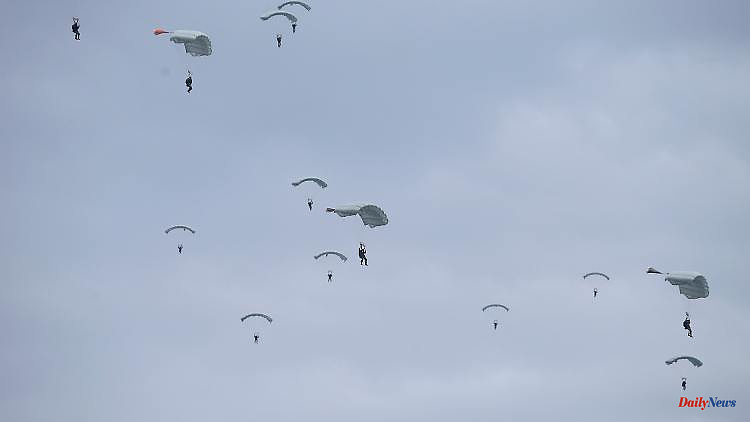The Russian Airborne Forces enjoy elite status within the Russian military. In Ukraine, however, they are said to have been involved in several loss-making missions. In a situation report, the British Ministry of Defense speaks of "heavy losses".
The British secret service attests that the Russian airborne troops made several serious mistakes in their attack on Ukraine. Since the beginning of the war, they have been involved in several "notable tactical failures," the Department of Defense writes in its daily intelligence update on Twitter. "This includes the attempt to advance to Kyiv via Hostomel airfield in March." In addition, the elite units are held responsible for the halting progress along the Izyum axis since April and the costly crossing of the Seversky Donets River.
According to the report, the Russian Airborne Forces are typically tasked with the most demanding military operations. The 45,000-strong unit consists primarily of professional contract soldiers. She enjoys elite status within the Russian military and receives better pay.
According to British intelligence, however, during the attack on Ukraine, the troops were repeatedly tasked with operations for which heavier armored infantry would have been better suited. That led to "heavy losses", according to the short management report. The mixed performance reflects strategic mismanagement and "Russia's failure to maintain air superiority."
The Russian airborne troops are divided into four brigades. In addition, there are the elite units of the 45th Guards Special Reconnaissance Brigade in the Red Army. This was formed in 1994 from the 901st and 218th battalions of the special forces known as Spetsnaz. Your main task is to prepare for the deployment of additional landing troops in the enemy rear. The brigade usually does not move more than 2000 kilometers away from the unit. During the first Chechen war, the brigade took part in the attack on Grozny and prepared the entry of the following infantry there.
In Ukraine, however, the clout of the troops is said to have been severely depleted. The British secret service had already reported significant losses at the beginning of May. "It will probably be years before Russia can raise these troops again," it said at the time. Among others, the prominent Spetsnaz commander Andrei Sukhovetsky was shot dead in early March. His death was reported on the website of the Union of Russian Paratroopers and in the Russian state media.












